I dutifully hopped on the adult tricycle loaned to me by Jeff (the retired syphilis hunter) and peddled over to the Brownsville Public Library. There, the only Pascal available was volume 30 out of the Great Books publication. So I check it out and I also picked up both volumes of the Syntopicon for browsing.
For the last several days, I have been reading The Provincial Letters. It seemed reasonable to start at the beginning of the book, because I don't know enough about the writings to skip to the good parts. Also, the last third is filled with science and math and equations that I will probably never be able to read. Unfortunately several days of reading and re-reading has taken me only through the first three letters.
Austin sneers at the reading of interpretations, histories, biographies, etc. from the classic writers, but with hard guys, I tend to read around them a while before I can get up the courage to actually read the book. Sometimes I only read around them and never get to the book.
Austin sneers at the reading of interpretations, histories, biographies, etc. from the classic writers, but with hard guys, I tend to read around them a while before I can get up the courage to actually read the book. Sometimes I only read around them and never get to the book.
In the case of Pascal, except for the two page "Biographical Note" at the beginning of the Volume 30, I haven't read anything. Usually, trying to get ready to read something this intimidating, I would first read a biography of Pascal, then I would read a history of 17th Century France, then I would read a history of mathematicians and then I would pick up a "the Best of" type of collection that has summaries and explanations surrounding snippets of original work. The down side to this approach is that I may never actually read anything by the author I am reading about so I don't get a chance to see if I agree with any of the critiques. For instance, I once read a good biography of James Joyce. I still have both Ulysses and Finnegans Wake knocking around in the house, unread.
For what very little it may be worth, this is what I have gleaned from the first three Provincial Letters: Pascal was attracted to a form of French Catholicism called Jansenism. A theologian for the Jansenists named M. Arnauld was "brought before the Sorbonne" which seems to mean was tried in a court that decided correct theology. The Sorbonne must have been large because 71 doctors tried to defend him and "on the other side" eighty secular doctors and some forty mendicant friars condemned him.
Pascal came to the rescue with these Provincial letters. The orthodox view was promoted by the Jesuits and this was that every person had "sufficient grace" given to him by God to obey the divine commandments. The Jansenists said, maybe so, every person has sufficient grace, but not every person was given by God the "efficacious grace," so they couldn't actually obey the divine commandments by putting this sufficient grace into action.
The Jesuits accused the Jansenists of believing like Protestants and in particular, Calvinists, that God had given this efficacious grace only to a chosen few. Then there were fence straddlers who agreed with the Jansenists, but wanted to stay on the right side of the argument politically who said, "Sufficient grace is given to all, but not every one has the type of grace that will suffice."
Pascal notes that the choices given are being censured as a Jansenist, being a heretic or being a blockhead and offending against reason.
Pascal has one of his characters argue that silence is the safest position. If you cannot remain silent, the next safest position is being a blockhead.
I'm sure there is a moral to this story, a punch-line to this joke, a crisis to be weathered, a lesson to be learned. If I get to the end and figure it out, I'll let you know.


























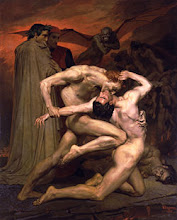_-_Dante_And_Virgil_In_Hell_(1850).jpg)



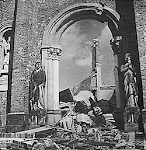











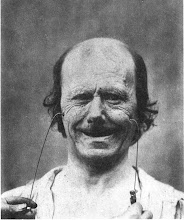
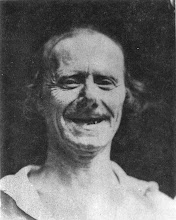


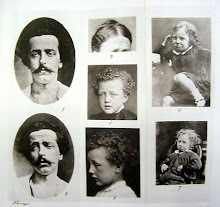





















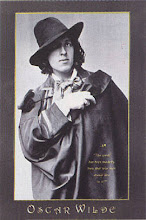
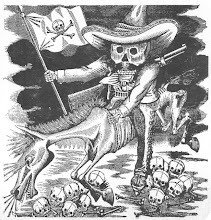












3 comments:
"Sufficient grace is given to all, but not every one has the type of grace that will suffice."
"Everyone is created equal, but some are more equal than others." -Animal Farm (unless my memory fails me)
In the day, as I am sure you are aware, "Natural Science" was still often confused with philosophy/theology,as was true during the classical Greek period/ It was one of nostalgic times where "the good old days" clashed with the current climate. We had the 80's where the 50's were almost worshiped. In Pascal's day the penalties for such reverence for days gone by had harsher consequences on the social and financial fronts.
My God man, is your old brain up to this much work?
I harkened to the mention of 'efficacious' grace--that which makes it so, Number One.
I attended a Christian retreat once with a group who identify with the Emmaeus story, wherein the risen Jesus appears to some travelers on the road to Emmaeus who are mourning the death, says startling things, then disappears when they recognize him. The centerpiece of it was a series of talks on varieties of grace. I don't recall all of them--there were seven--but I do recall (and have often been struck by) the idea of prevenient grace, that being grace extended to such as myself before we knew there was such a thing as grace. So when I tumbled of a bicycle at the age of ten on a highway and watched with horror as the tire of a blue Ford rolled directly at my face, stopping a few feet away with a great squealing of rubber on road, that was a moment of grace.
Now as to whence or why it came and came to me, I have been reading (and typing up) Khayyam these days, and am loathe to guess but it certainly became a deeply imprinted story for me.
Post a Comment